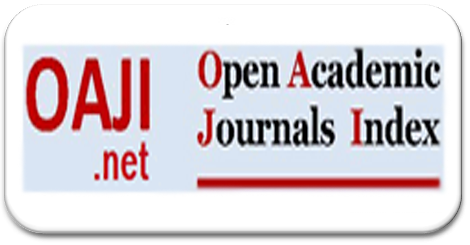- Focus and Scope
- Section Policies
- Peer Review Process
- Publication Frequency
- Open Access Policy
- Archiving
- Publication Frequency
- Publication Fee
- Plagiarism Check
- Publication Ethic
Focus and Scope
FOCUS
The focus of Substantia: Jurnal Ilmu-Ilmu Ushuluddin is to provide a scientific article of conceptual studies of Aqidah, Philosophy, Islamic Thought, Study of Tafsir and Hadith, Comparative Religions, Sociology of Religion and Sufism that developed in attendance through the article publications, research reports, and book reviews.
SCOPE
Substantia: Jurnal Ilmu-Ilmu Ushuluddin welcome papers from academicians on theories, philosophy, conceptual paradigms, academic research, as well as religious practices. In particular, papers which consider the following general topics are invited
- Conceptual studies of Aqidah
- Quranic and Hadith Studies
- Islamic Philosophy
- Philosophy
- Islamic Thought and Literature
- Islam and Peace
- Science & Civilization in Islam
- Islam in a local/nation
- Islam and gender
- Tafsir Hadith
- Comparative Religions
- Sociology of Religion
- Mysticism
Section Policies
Articles
Peer Review Process
Substantia: Jurnal Ilmu-Ilmu Ushuluddin uses a double-blind policy review, the initial authors and articles are not displayed until the articles are accepted for further review and publication. Each article sent will be evaluated on the basis of the following considerations:
- The results of scientific work are the work of the Original
- Conformity between methodologies and research topics
- Have a good analysis
- The ability to communicate with readers
- Based on the recommendations of the reviewer
- The normal time for screening and evaluation of manuscripts is three to five months from the date of receipt
- Articles submitted to Substantia: Jurnal Ilmu-Ilmu Ushuluddin can use Indonesian, English, or Arabic. However, abstracts must be in Indonesian and English.
Editor Substantia: Jurnal Ilmu-Ilmu Ushuluddin has the full right to decide whether the article is accepted or rejected
Publication Frequency
Substantia: Jurnal Ilmu-Ilmu Ushuluddin is published twice a year (April & Oktober).
Open Access Policy
This journal provides immediate open access to its content on the principle that making research freely available to the public supports a greater global exchange of knowledge.
Archiving
This journal utilizes the LOCKSS system to create a distributed archiving system among participating libraries and permits those libraries to create permanent archives of the journal for purposes of preservation and restoration. More...
Publication Frequency
Substantia: Jurnal Ilmu-Ilmu Ushuluddin is published twice a year (April & Oktober)
Publication Fee
This journal charges the following author fees.
ARTICLE SUBMISSION:
0.00 (IDR) Authors ARE NOT REQUIRED to pay an Article Submission Fee as part of the submission process.
ARTICLE PUBLICATION:
Article Publishing Charges (APCs): 500,000.00 (IDR)
Authors are required to pay Article Publishing Charges (APCs) as part of the publication process.
Plagiarism Check
All of the articles submitted to Substantia: Jurnal Ilmu-Ilmu Ushuluddin will be screened for plagiarism using plagiarism detection tools (Turnitin ). This Journal will immediately reject papers leading to plagiarism or self-plagiarism.
Before submitting articles to reviewers, those are first checked for similarity/plagiarism tool, by a member of the editorial team. The papers submitted to this journal must have a similarity level of less than 25%.
Plagiarism is the exposure of another person’s thoughts or words as though they were your own, without permission, credit, or acknowledgment, or because of failing to cite the sources properly. Plagiarism can take diverse forms, from literal copying to paraphrasing the work of another. In order to properly judge whether an author has plagiarized, we emphasize the following possible situations:
- An author can literally copy another author’s work- by copying word by word, in whole or in part, without permission, acknowledge or citing the original source. This practice can be identified by comparing the original source and the manuscript/work who is suspected of plagiarism.
- Substantial copying implies an author to reproduce a substantial part of another author, without permission, acknowledge, or citation. The substantial term can be understood both in terms of quality as quantity, is often used in the context of Intellectual property. Quality refers to the relative value of the copied text in proportion to the work as a whole.
- Paraphrasing involves taking ideas, words, or phrases from a source and crafting them into new sentences within the writing. This practice becomes unethical when the author does not properly cite or does not acknowledge the original work/author. This form of plagiarism is the more difficult form to be identified.
Publication Ethic
Substantia: Jurnal Ilmu-Ilmu Ushuluddin is a peer-reviewed international journal, available in print and online and published twice a year. This statement clarifies ethical behaviour of all parties involved in the act of publishing an article in this journal, including the author, the chief editor, the Editorial Board, the peer-reviewer and the publisher (State Islamic University (UIN) of Ar-Raniry – Banda Aceh, Indonesia). This statement is based on COPE’s Best Practice Guidelines for Journal Editors.
Ethical Guideline for Journal Publication
The publication of an article in a peer-reviewed is an essential building block in the development of a coherent and respected network of knowledge. It is a direct reflection of the quality of the work of the authors and the institutions that support them. Peer-reviewed articles support and embody the scientific method. It is therefore important to agree upon standards of expected ethical behavior for all parties involved in the act of publishing: the author, the journal editor, the peer reviewer, the publisher and the society.
State Islamic University (UIN) of Ar-Raniry – Banda Aceh, Indonesia as publisher of Journal Substantia takes its duties of guardianship over all stages of publishing seriously and we recognize our ethical and other responsibilities. We are committed to ensuring that advertising, reprint or other commercial revenue has no impact or influence on editorial decisions. And Editorial Board will assist in communications with other journals and/or publishers where this is useful and necessary.
Publication decisions
The editor is responsible for deciding which of the articles submitted to the journal should be published. The validation of the work in question and its importance to researchers and readers must always drive such decisions. The editors may be guided by the policies of the journal's editorial board and constrained by such legal requirements as shall then be in force regarding libel, copyright infringement and plagiarism. The editors may confer with other editors or reviewers in making this decision.
Fair play
An editor at any time evaluate manuscripts for their intellectual content without regard to race, gender, sexual orientation, religious belief, ethnic origin, citizenship, or political philosophy of the authors.
Confidentiality
The editor and any editorial staff must not disclose any information about a submitted manuscript to anyone other than the corresponding author, reviewers, potential reviewers, other editorial advisers, and the publisher, as appropriate.
Disclosure and conflicts of interest
Unpublished materials disclosed in a submitted manuscript must not be used in an editor's own research without the express written consent of the author.
Duties of Reviewers
Contribution to Editorial Decisions
Peer review assists the editor in making editorial decisions and through the editorial communications with the author may also assist the author in improving the paper.
Promptness
Any selected referee who feels unqualified to review the research reported in a manuscript or knows that its prompt review will be impossible should notify the editor and excuse himself from the review process.
Confidentiality
Any manuscripts received for review must be treated as confidential documents. They must not be shown to or discussed with others except as authorized by the editor.
Standards of Objectivity
Reviews should be conducted objectively. Personal criticism of the author is inappropriate. Referees should express their views clearly with supporting arguments.
Acknowledgement of Sources
Reviewers should identify relevant published work that has not been cited by the authors. Any statement that an observation, derivation, or argument had been previously reported should be accompanied by the relevant citation. A reviewer should also call to the editor's attention any substantial similarity or overlap between the manuscript under consideration and any other published paper of which they have personal knowledge.
Disclosure and Conflict of Interest
Privileged information or ideas obtained through peer review must be kept confidential and not used for personal advantage. Reviewers should not consider manuscripts in which they have conflicts of interest resulting from competitive, collaborative, or other relationships or connections with any of the authors, companies, or institutions connected to the papers.
Duties of Authors
Reporting standards
Authors of reports of original research should present an accurate account of the work performed as well as an objective discussion of its significance. Underlying data should be represented accurately in the paper. A paper should contain sufficient detail and references to permit others to replicate the work. Fraudulent or knowingly inaccurate statements constitute unethical behaviour and are unacceptable.
Originality and Plagiarism
The authors should ensure that they have written entirely original works, and if the authors have used the work and/or words of others that this has been appropriately cited or quoted.
Multiple, Redundant or Concurrent Publication
An author should not in general publish manuscripts describing essentially the same research in more than one journal or primary publication. Submitting the same manuscript to more than one journal concurrently constitutes unethical publishing behaviour and is unacceptable.
Acknowledgement of Sources
Proper acknowledgment of the work of others must always be given. Authors should cite publications that have been influential in determining the nature of the reported work.
Authorship of the Paper
Authorship should be limited to those who have made a significant contribution to the conception, design, execution, or interpretation of the reported study. All those who have made significant contributions should be listed as co-authors. Where there are others who have participated in certain substantive aspects of the research project, they should be acknowledged or listed as contributors. The corresponding author should ensure that all appropriate co-authors and no inappropriate co-authors are included on the paper, and that all co-authors have seen and approved the final version of the paper and have agreed to its submission for publication.
Disclosure and Conflicts of Interest
All authors should disclose in their manuscript any financial or other substantive conflict of interest that might be construed to influence the results or interpretation of their manuscript. All sources of financial support for the project should be disclosed.
Fundamental errors in published works
When an author discovers a significant error or inaccuracy in his/her own published work, it is the author’s obligation to promptly notify the journal editor or publisher and cooperate with the editor to retract or correct the paper


.png)





















